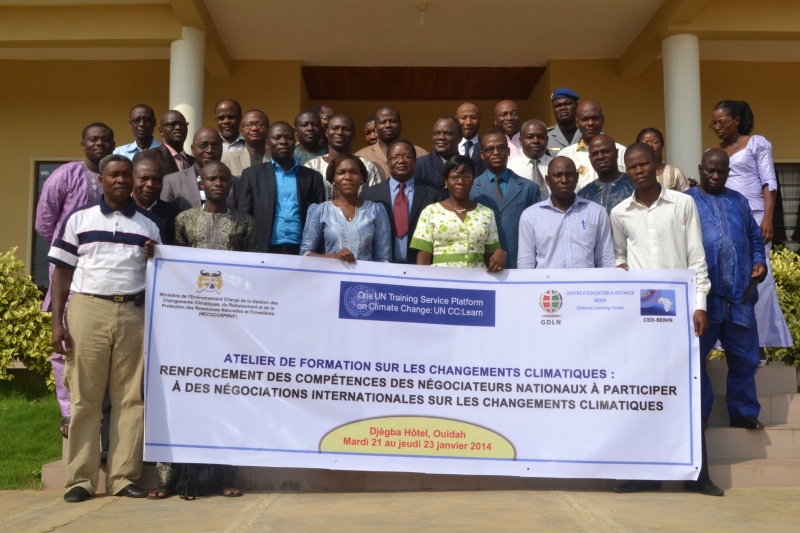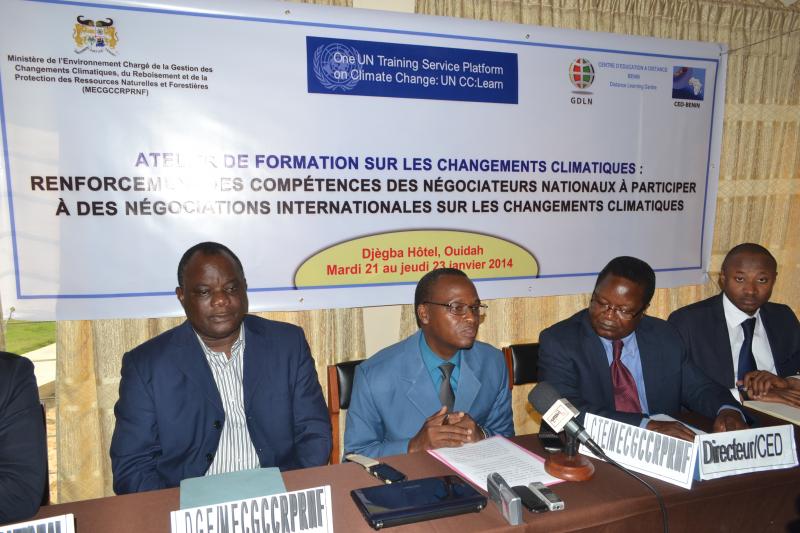Thirty negotiators from Benin were trained on the subject of climate change negotiation during a three day workshop in Ouidah. The workshop took place from 21 January to 23 January 2014. The event was organized by the Ministry of Environment in Charge of Climate Change Management, Reforestation and Protection of Natural and Forest Resources of Benin, in partnership with the Centre d’éducation à distance (CED-Benin) and the Institut de la Francophonie pour le Développement Durable (IFDD), with support from the UN CC:Learn secretariat. The workshop is part of an early implementation phase of Benin’s National Climate Change Learning Strategy (more information on the Strategy: http://www.uncclearn.org/benin).
The main objective of the workshop was to reinforce the capacities of Benin negotiators to defend Benin’s positions on climate change issues. The workshop thus aimed at preparing the negotiators to the challenges and priorities emerging in the post 2015 negotiations.

Workshop objectives
- Understanding the content of various climate related international agreements (United Nations Framework Convention on Climate Change, Kyoto Protocol, etc.);
- Understanding the process and rules of climate change negotiations;
- Getting to know the negotiation groups and how they work;
- Understanding the technique to help conciliate the contradictory positions supported by the different negotiations groups to which Benin belongs;
- Understanding the meaning and significance of the decisions taken in past climate conferences.
The workshop was divided in several sessions based on interactive presentations supported by various publications as well as practical activities such as simulations and role playing. The material produced during the training and the results from its evaluation will be used by the CED Benin as a basis for complementary trainings and possibly to develop a more formal curriculum, in collaboration with the Ministry.

